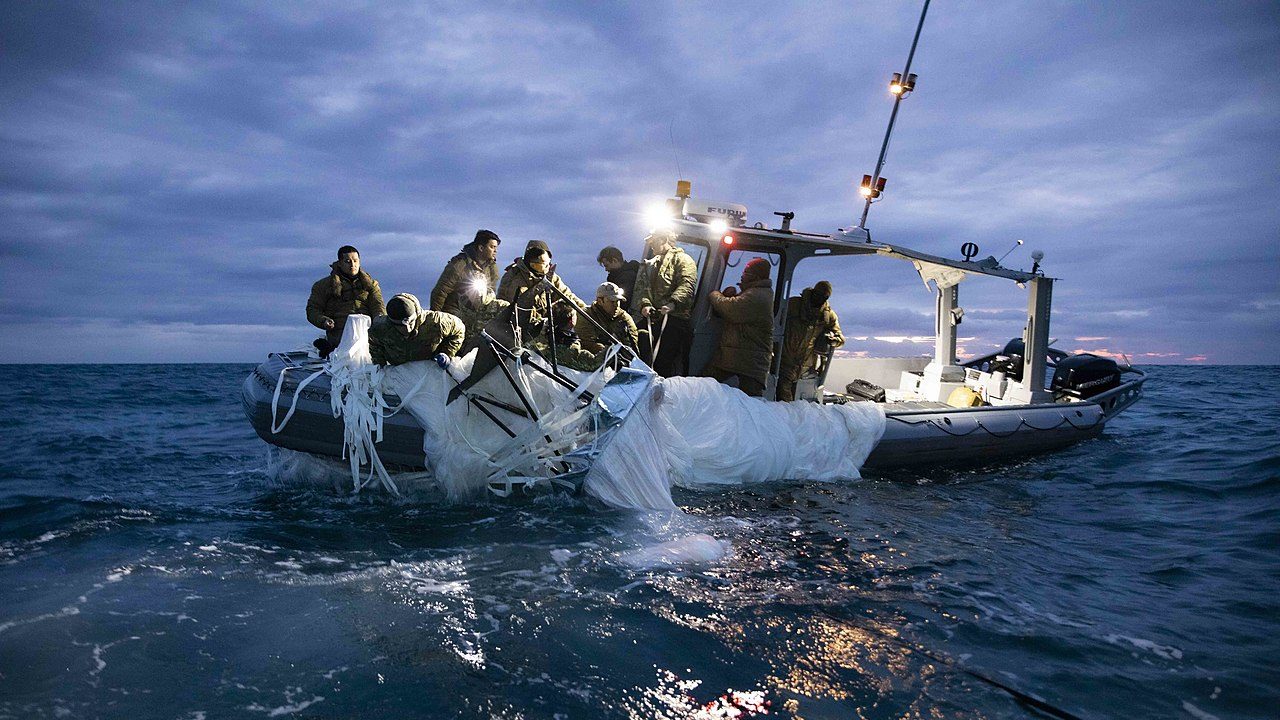Balloons and UFOs spark tension between the U.S. and China
The Chinese spy balloon discovered over the United States did not pose much threat, according to three commentators.

Sailors assigned to Explosive Ordnance Disposal Group 2 recover a high-altitude surveillance balloon off the coast of Myrtle Beach, South Carolina, Feb. 5, 2023.
About a week ago, the United States military shot down an unidentified object over Lake Huron. It was the third unidentified object shot down in North American air space in as many days.
It also came amid the backdrop of escalating tensions between the U.S. and China after a surveillance balloon, with tools for collecting electronic communications, floated across the country before being shot down off the South Carolina coast.
While Beijing acknowledged the balloon belonged to China, they claim it was for weather research.
These events highlight the ever-changing relationship between the two countries, as the American people’s view of China has become more negative over the past decade.
“I hate to say it was a lot of hot air, but the inflated threat of this balloon became the talk of everything.” — Jonathan Guyer, Vox
Listen: How U.S.-China relations are changing following the discovery of a Chinese spy balloon over America.
Guests
Jonathan Guyer covers foreign policy, national security and global affairs for Vox. He says most experts believe the concerns over the balloon and other unidentified objects in the air are overblown.
“I hate to say it was a lot of hot air, but the inflated threat of this balloon became the talk of everything,” says Guyer. “I spoke with tons of national security experts, people who work in the Pentagon… no one was that nervous about this one spy balloon.”
Kenneth Pomeranz is a professor of Modern Chinese History at the University of Chicago. He says worsening U.S.-China relations hurt both countries.
“I think there are areas particularly with relationship to technology theft, where China has gone over the line,” says Pomeranz. “And also (in some ways) the United States has gone over the line in retaliation — not so much over the line in the sense that we’ve injured China in unacceptable ways, but that we’ve actually kind of injured ourselves.”
Justin Logan is the director of defense and foreign policy studies at the Cato Institute. He says it is misleading to refer to the current state of U.S.-China relations as a new Cold War.
“I think that the fundamental problem here is that at the strategic level, U.S. policy toward China is working against itself,” says Logan. “To my mind, the fundamental problem here is the incoherence of the economic and security aspects of U.S. strategy toward China.”
Trusted, accurate, up-to-date.
WDET strives to make our journalism accessible to everyone. As a public media institution, we maintain our journalistic integrity through independent support from readers like you. If you value WDET as your source of news, music and conversation, please make a gift today.
